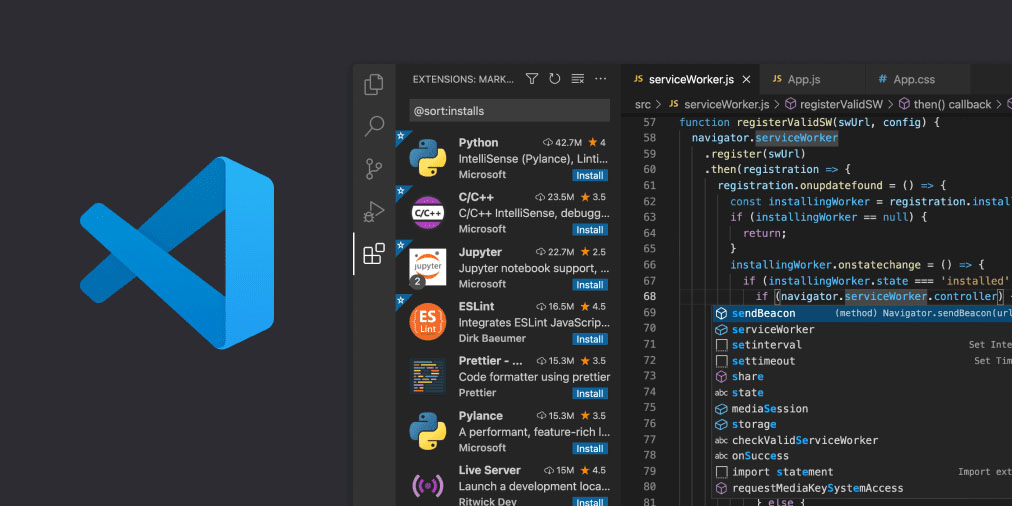Toán tử trong C++ (Operator in C++)
Toán tử là các ký tự đặc biệt trong ngôn ngữ lập trình C++ được sử dụng để thực hiện các phép tính hoặc thao tác trên các giá trị. C++ hỗ trợ nhiều loại toán tử khác nhau để thực hiện các tác vụ khác nhau trong chương trình. Trong bài viết này, chúng ta sẽ tìm hiểu về các loại toán tử trong C++ và cách sử dụng chúng.
- Toán tử số học (Arithmetic Operators): Toán tử số học trong C++ được sử dụng để thực hiện các phép tính số học cơ bản như cộng (+), trừ (-), nhân (*), chia (/) và modulo (%). Ví dụ:
int a = 10, b = 5;
int sum = a + b; // Tổng
int difference = a - b; // Hiệu
int product = a * b; // Tích
int quotient = a / b; // Thương
int remainder = a % b; // Số dư
- Toán tử gán (Assignment Operators): Toán tử gán trong C++ được sử dụng để gán giá trị cho biến. Các toán tử gán phổ biến bao gồm =, +=, -=, *=, /= và %=.
int a = 10;
int b = 5;
a += b; // tương đương với a = a + b;
a -= b; // tương đương với a = a - b;
a *= b; // tương đương với a = a * b;
a /= b; // tương đương với a = a / b;
a %= b; // tương đương với a = a % b;
- Toán tử tăng và giảm (Increment and Decrement Operators): Toán tử tăng và giảm được sử dụng để tăng hoặc giảm giá trị của một biến một đơn vị. C++ hỗ trợ hai loại toán tử tăng và giảm: ++ và –. Nếu toán tử nằm trước biến (++a hoặc –a), thì giá trị của biến sẽ được tăng/giảm trước khi sử dụng. Nếu toán tử nằm sau biến (a++ hoặc a–), thì giá trị của biến sẽ được tăng/giảm sau khi sử dụng.
int a = 5;
int b = ++a; // a = 6, b = 6
int c = a--; // a = 5, c = 6
- Toán tử so sánh (Comparison Operators): Toán tử so sánh được sử dụng để so sánh hai giá trị và trả về kết quả là một giá trị boolean (true hoặc false). Các toán tử so sánh bao gồm == (bằng nhau), != (không bằng nhau), > (lớn hơn), < (nhỏ hơn), >= (lớn hơn hoặc bằng), và <= (nhỏ hơn hoặc bằng).
int a = 5;
int b = 10;
bool isEqual = (a == b); // false
bool isNotEqual = (a != b); // true
bool isGreater = (a > b); // false
bool isLess = (a < b); // true
bool isGreaterOrEqual = (a >= b); // false
bool isLessOrEqual = (a <= b); // true
- Toán tử logic (Logical Operators): Toán tử logic được sử dụng để kết hợp các điều kiện logic và trả về kết quả là một giá trị boolean. C++ hỗ trợ ba toán tử logic: && (và), || (hoặc) và ! (phủ định).
bool condition1 = true;
bool condition2 = false;
bool result1 = (condition1 && condition2); // false
bool result2 = (condition1 || condition2); // true
bool result3 = !condition1; // false
- Toán tử bit (Bitwise Operators): Toán tử bit trong C++ được sử dụng để thực hiện các phép tính bit trên các giá trị nhị phân. Các toán tử bit bao gồm & (and), | (or), ^ (xor), ~ (not), << (shift left) và >> (shift right).
int a = 5; // 0101
int b = 3; // 0011
int result1 = (a & b); // 0001 (and)
int result2 = (a | b); // 0111 (or)
int result3 = (a ^ b); // 0110 (xor)
int result4 = ~a; // 1010 (not)
int result5 = (a << 1); // 1010 (shift left)
int result6 = (a >> 1); // 0010 (shift right)
Trên đây là một số loại toán tử quan trọng trong ngôn ngữ lập trình C++. Hi vọng bài viết đã giúp bạn hiểu rõ hơn về cách sử dụng các toán tử này để thực hiện các phép tính và thao tác trong chương trình của mình. C++ còn hỗ trợ nhiều toán tử khác nhau, vì vậy bạn có thể nghiên cứu thêm để tận dụng toàn bộ sức mạnh của ngôn ngữ này trong quá trình lập trình.

















